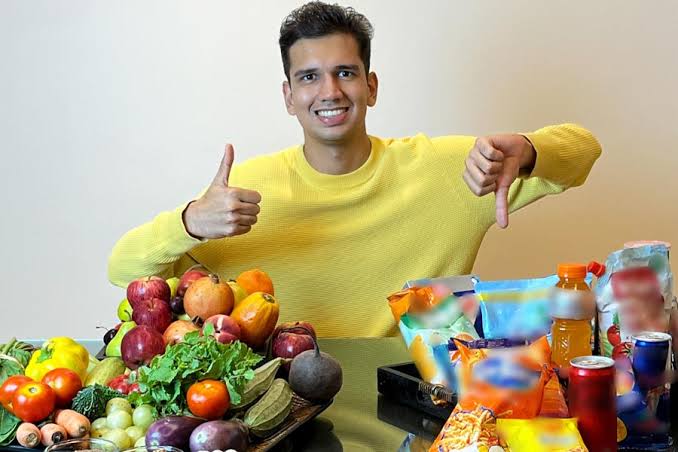Himatsingka grew up in an upper-middle-class household, with a homemaker mother and a father running his own business in Kolkata.
After his schooling, Himatsingka went to New York to study finance at the New York University’s NYU Stern School of Business where he graduated in finance. For a year after that he worked with a bank in the US. At 22, he started writing a book, Selfienomics, a comedy book focusing on managing finance, religion,starting a business, health, death, and even completing projects on time.
“I wrote one chapter on how to read a food label even then,” Himatsingka says. “Back then, and even now I believe that it is the most important skill in the 21st century.” While he did secure admission into the illustrious IIM Bangalore, Himatsingka turned it down, instead focussing on his book.
By 2018, Himatsingka went to do an MBA at Wharton and followed it up with a course in nutrition, while also starting work at McKinsey as a consultant. Himatsingka says As a consultant, I need to work to solve business problems and try to structure solutions. We focus on our career when it comes to structuring solutions and being data driven. But Himatsingka tries to extrapolate that into life, in which health is one of our most important aspects.
Himatsingka was also concerned by the growing link between cancer and heart diseases to packaged and processed food. In 2019, a study published in the British Medical Journal (BMJ) suggested a possible link between “ultra-processed” foods and cancer. The study defined ultra-processed foods as those lacking vitamins and fibre, which also contain high levels of sugar, fat, and salt. Such ultra-processed food, the study noted, represents as much as half of the daily energy intake in several developed countries. “This is such a big problem and no one is talking about it,” Himatsingka says. “No one is trying to solve it. So, I thought, “I wanted to do something in this space.”
He is earning well in the US , decided to pack bags and come back home and do something about this. “April 1st is when I made the Bournvita video. I made a video showcasing how Bournvita was falsely labelling itself. Their label showed that you get stronger bones and muscles. Then I got a legal notice from Bournvita asking me to take down the video in 24 hours.”
Bournvita looks healthy compared to cock but it has too much sugar which impacts the health of childrens. Himatsingka though found support from unexpected quarters. The Nutrition Advocacy in Public Interest India (NAPi) a think tank comprising independent experts in epidemiology, human nutrition, community nutrition and paediatrics, medical education, administration, and management, issued a statement supporting Himatsingka.
“The food product Bournvita falls under the ultra-processed food (UPF) category based on its ingredients list,” NAPi said in a statement. “This industrial formulation is inherently harmful. There is enough scientific evidence present in the public domain pertaining to the negative impact of increasing consumption of UPFs on human health, which include several chronic diseases such as obesity, diabetes, cardiovascular disease, cancer, and depression (Non-Communicable Diseases-NCDs).”
The National Commission for Protection of Child Rights (NCPCR) also issued a notice to Mondelez asking the company to review and withdraw all misleading advertisements, packaging, and labels. The NCPCR is a statutory body to protect child rights.
Personally, for Himatsingka, the pushback from Mondelez couldn’t have come at a worse time. “I had just quit my job. And my family was asking me what I was trying to do with my life. They said ‘you had such a good job, you left all of that, now you are getting into a legal fight’,” Himatsingka says. “So I removed the video as they asked me to. And that got even more attention.”
For now, the 31-year-old says his focus remains steadfast on raising awareness around food.
“Because of the Bournvita controversy, the rollover impact is that all the other companies are also going to get scared now to falsely market themselves,”
Himatsingka says. “I cannot think of a human problem that is relatively easy to solve than nutrition labels and it creates massive impact.”
A few weeks ago, Himatsingka raised awareness about the growing consumption of bread in India and how most makers of bread who sell whole wheat or brown bread use more maida, which has less fiber, and is unhealthy. He had also called out juice makers for their use of sugar by comparing various mango juices available in the country.
“There are millions of problems in the world. But most of the problems are very hard to solve, like air pollution. But teaching people how to read a food label is easy. I feel learning how to read a food label is more important than coding in the 21st century, where most of what we’re eating is processed or packaged.”
Indeed, the fight is long. And Himatsingka is only gearing up for more.

